Throat Polyps
What are Throat Polyps?
Throat polyps also known as vocal cord polyps, are small fleshy growths that appear on one or both of the vocal cords. The growths are not cancerous and have several causes. These growths result when the vocal cords are overused. They might just vanish on their own or respond to treatment.
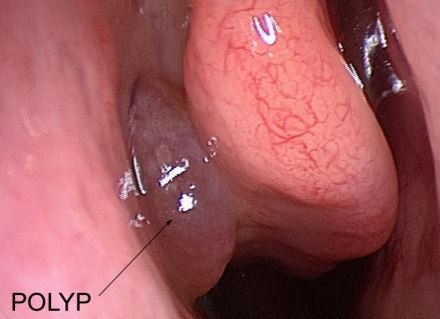
What are the Symptoms of Throat Polyps?
It is not unusual for a person affected with some growths of throat polyps to be entirely not aware of them, especially if they are so small. Some polyps break off and just disappear by themselves or gone naturally inside the body.
However, these polyps can also grow so large to the point where they interfere with the ability of the person to talk. Its effects on the voice will also depend on the location of the polyps on the vocal cords. They can alter the pitch of the voice to make it sound like it is lower than normal or be the reason of the hoarseness and croakiness of the voice.
The condition does not usually cause any pain aside from sore throat or the misdiagnosis of the problem. Throat polyps are sometimes confused with the lump in the throat but they are not the same.
The polyps cannot be felt or materialize as an inflammation in the throat. If a person has a lump in the throat, then it could be possibly caused by cysts or tonsils infections.
Other symptoms of throat polyps include:
- Voice changes – The voice turns deep and hoarse making it difficult to speak loudly, and individuals who experience it frequently say that their tone has raspy quality. Other changes like the inability to reach the desired notes and the shrinking of singing range also occur.
- Ear pain – A sharp pain from ear to ear is felt when the polyps are very big or in wide groupings.
- Fatigue of both the body and voice
- A feeling of having a lump present in the throat
- Scratchy throat – Most patients complain about the scratchiness that does not seem to go away. Vocal abuse is the cause.
What are the Causes of Throat Polyps?
Throat polyps can be caused by one traumatic episode which might be through screaming, long term smoking, gastroesophageal reflux disease (GERD), or hypothyroidism.
Several types of vocal abuse can also cause the polyps to develop and these include singing, allergies, talking loudly, tense muscles, drinking too much alcohol or coffee, and cheerleading.
What are the Treatments for Throat Polyps?
Medical, behavioral, or surgical treatments can be used in treating throat polyps. A speech-language pathologist can come up with valuable resources of both voice therapy and behavioral therapy.
These approaches focus on relaxation exercises, good vocal hygiene, techniques to minimize stress, prevent abusive vocal behaviors, and adjust the loudness and pitch.
Depending on the patient’s situation, a speech therapist may also be needed to modify voice habits. Medical interventions might be required as well in order to control stress or stop smoking. Other individuals are recommended to have an inhaled steroid spray for treatment.
There are also cases that require surgery for the removal of the polyps. The physician will first perform a biopsy to make sure that there is no cancer present.
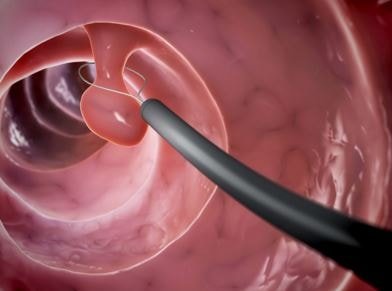
Laryngoscope sent to remove throat polyp
Laryngoscopy is performed in order to get rid of the polyps wherein a metal tube is entered through the mouth and into the throat together with a light on the tip of the tube to visualize the area. The physician will then clip off the polyps with the use of a sharp small punch. Once all the polyps are removed, voice therapy has to begin.
Pictures
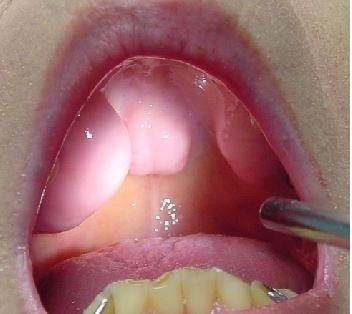
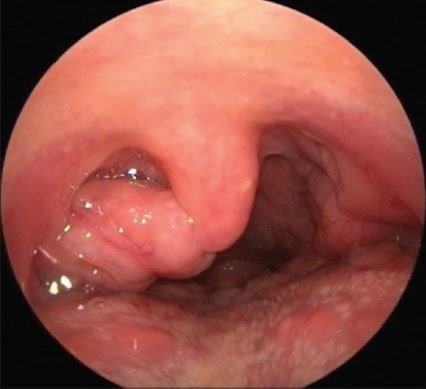
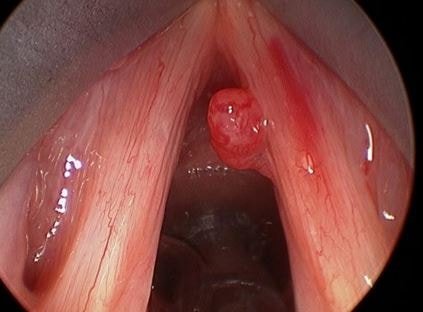
References:
http://www.medic8.com/healthguide/sore-throat/throat-polyps.html
How are Throat Polyps Detected?, Long Term Effects at http://www.throatproblems.co.uk/what-are-throat-polyps.html
http://www.newhealthguide.org/Throat-Polyps.html
Cho KJ, Nam IC, Hwang YS, Shim MR, Park JO, Cho JH, et al (2011 Sep). Analysis of factors influencing voice quality and therapeutic approaches in vocal polyp patients. Eur Arch Otorhinolaryngol. 268(9):1321-7.
Shah RK, Woodnorth GH, Glynn A, et al (2005 Jul). Pediatric vocal nodules: correlation with perceptual voice analysis. Int J Pediatr Otorhinolaryngol. 69(7):903-9.
Andrade DF, Heuer R, Hockstein NE, et al (2000 Jun). The frequency of hard glottal attacks in patients with muscle tension dysphonia, unilateral benign masses and bilateral benign masses. J Voice. 14(2):240-6.
